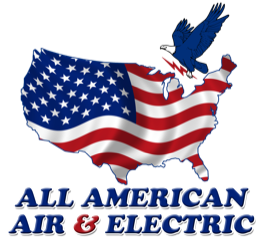When it comes to heating your home, you want an efficient system that provides you with the most comfortable temperatures for the lowest overall cost. If you need to upgrade or replace your system, you may have several heating system fuel options available, but feel unsure which is right for your home.
In this blog, we compare the characteristics of two of the most common fuel types used: natural gas and electricity.
Equipment
Both gas and electricity can be used with furnaces. However, gas furnaces are more complex than electric ones. When a contractor installs your gas furnace, he or she must also install a venting system. Because of this complexity, gas furnaces often take longer to install and are a bigger initial investment.
Electric furnace installations are a fraction of the cost of gas furnace installation. Electric furnaces do not require exterior vents so they can be installed anywhere in the home in a shorter period of time.
Heating Costs
Once a furnace is installed, its heating costs depend on the cost of fuel at the time. The cost of natural gas has steadily fallen for years. In some areas, natural gas can cost approximately half as much as electricity, but overall, the difference is not quite so large.
If you have an electric furnace, the heating costs simply join your other electrical costs. Some homeowners prefer to make a single electrical payment, rather than to pay both gas and electric bills.
Efficiency
When talking about a heater, efficiency refers to how much of the fuel the system actually converts into heat. The more fuel the system converts, the higher the efficiency percentage and the less fuel wasted. Most gas furnaces run at about 80 to 90% efficiency.
Electric furnaces can run at efficiency levels as high as 100%. Individual unit efficiency depends on the furnace model, age, and condition. Regardless of the type of heater you choose, you must maintain the unit correctly to ensure that the efficiency level stays as high as possible.
Sustainability
Heating is one of the biggest factors in your household’s environmental impact. Some homeowners may be surprised to know that natural gas is considered more sustainable than electricity. Natural gas production does produce emissions, but it burns cleaner than coal.
Most electricity in the United States is created using coal, which is one of the most environmentally harmful burning fuels still in use. Homeowners who opt for electric furnaces may offset these environmental costs somewhat by investing in a high-quality and high-efficiency model.
Versatility
Some homes can be heated comfortably using only a central unit. Other homes, however, rely on a zoned system that lets the homeowner control the temperature in sections of the home independently from others. Zoned systems are ideal for multi-story homes and homes with living areas in garages or basements.
Gas furnaces are only available as central units. The complex venting requirement prevents gas furnaces from being compatible with zoned systems. Electric furnaces can be used centrally or as a zoned heater.
Maintenance
To keep any heater in good condition, you must have an HVAC professional assess and service the system. Most heaters require annual checkups. However, these routine service calls are more essential if you have a gas furnace.
Because natural gas poses a threat to your family’s health if it leaves the furnace or venting system, gas furnaces must be serviced once a year but may need up to three service visits each year.
Gas furnaces may also need more frequent cleanings because they run by burning gas, which produces soot. Electric furnaces run on electrical resistance within a heating element, so they don’t produce a by-product that must be removed by a professional.
Maintenance is not as crucial for electric furnaces since any issues with the system simply affect heating, not health.
Durability
When you make an investment in a new heating system, you want the system to last as long as possible. Once a system reaches the end of its expected lifespan, it may need frequent repairs and will require eventual replacement.
Gas furnaces generally last 10 to 20 years, depending on the unit’s quality and how well it’s maintained. Electric furnaces can function for up to twice as long as their gas counterparts, with a unit generally lasting 20 to 30 years.
As you decide which heater to choose, compare all the characteristics listed above, not just initial or monthly costs to ensure that you opt for your best heating option.
The right heating fuel type for your home may also depend on your house’s location and architecture. If you have property-specific questions while choosing a new system, talk to an experienced contractor at All American Air & Electric, Inc.
We offer both gas and electric heating systems so we can help you narrow down your options based on your budget, priorities, and home’s characteristics.

